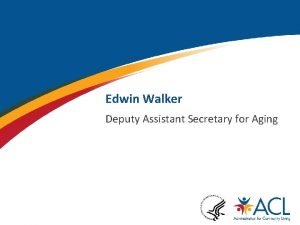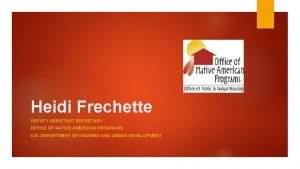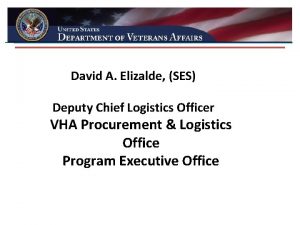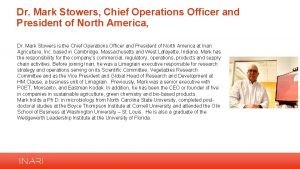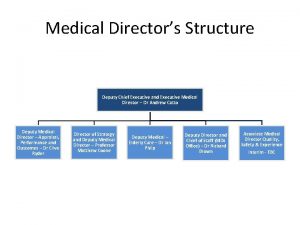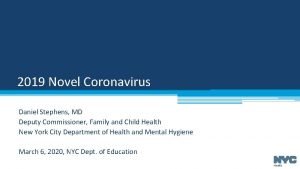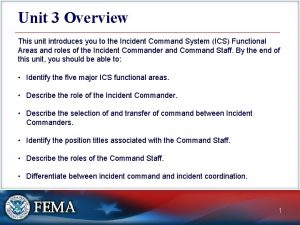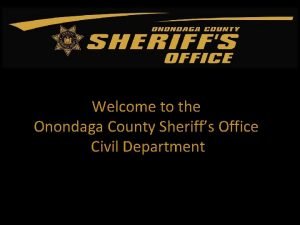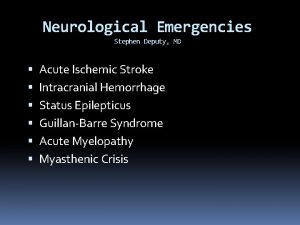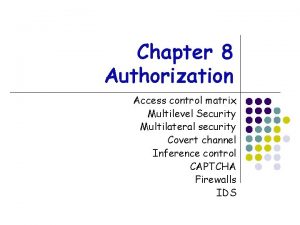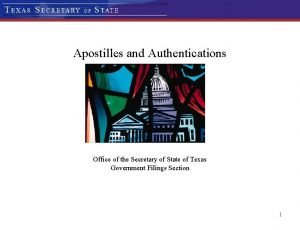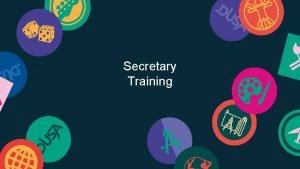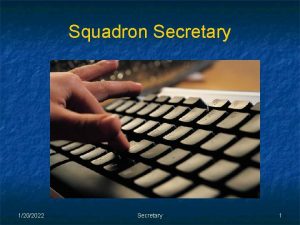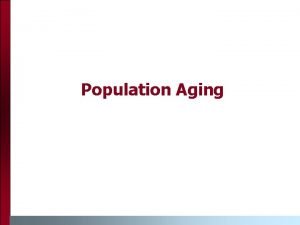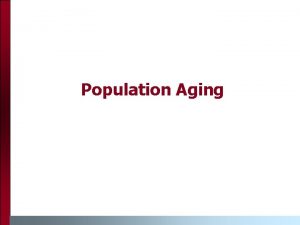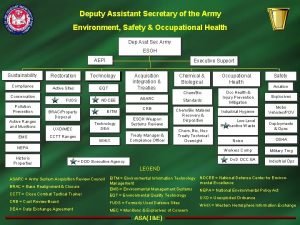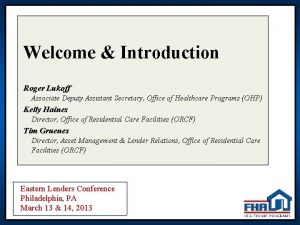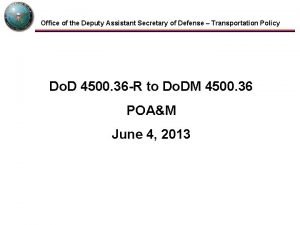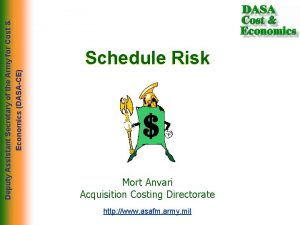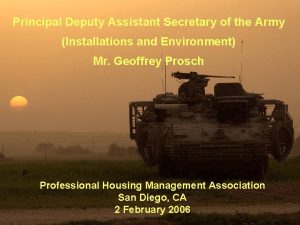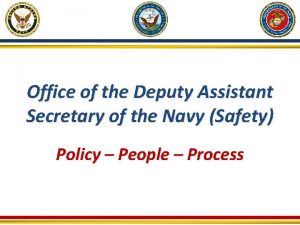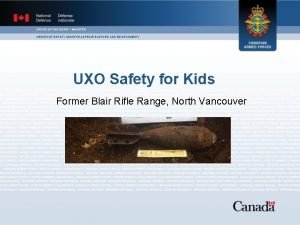Edwin Walker Deputy Assistant Secretary for Aging Family
















- Slides: 16

Edwin Walker Deputy Assistant Secretary for Aging

Family Caregiving: Who needs care? • By 2020, there will be more than 77 million people over the age of 60 in the United States. o As many as two-thirds of them eventually will need help with dressing, showering, or similar activities. • Nearly 57 million people with disabilities live in noninstitutional settings o About 20 percent of them need help with daily living tasks.

Family Caregiving: Who are the caregivers? According to the “ 2015 Caregiving in the U. S. ” study (National Alliance for Caregiving/AARP, 2015): • Approximately 43. 5 million adults provided care to an adult or child in the previous 12 months • 60% of caregivers are female and have been providing care for an average of 4 years • Caregivers over age 75 are typically the sole source of support for their loved one

Family Caregiving: Increasingly complex • In 2010, an AARP and United Hospital Fund study estimated that nearly half (46%) of family caregivers perform complex medical/nursing tasks. o 78% of these caregivers were managing medications, including IV fluids and medications • A 2013 survey of people participating in ACL’s National Family Caregiver Support Program found that: o o 74% provide bathing/personal care 88% perform medical tasks 91% manage finances 92% perform care management tasks o Occurrence of each of these tasks is up 1 -3 percentage points in the last year v Note: NFCSP caregivers tend to be older (72% age 60+), spouses (47%), and provide most of the care (86%)

Family Caregiving: Economics • The unpaid value of family caregiving in 2013 was estimated to be approximately $470 billion, up from $450 billion in 2009. (Source: AARP’s 2015 update to “Valuing the Invaluable”) • Six in ten caregivers report having to make adjustments to their work schedule to accommodate caregiving. (Source: Caregiving in the U. S. , National Alliance for Caregiving/AARP, 2015)

Family Caregiving: Economics of the alternatives • When families become overwhelmed by the challenges of caregiving, institutional settings often become the only option. o The average cost of a shared room in a nursing home is almost $75 thousand per year o Residential facilities for people with disabilities can cost three times that. o When people cannot afford these costs, Medicaid is the primary payer.

Family Caregiving: Biggest challenges Participants in ACL’s National Family Caregiver Support Program report that their biggest challenges are: • • Stress (26%) Not enough self-time (16%) Financial burden (11%) About 1/3 provide 40+ hours of care per week

Family Caregiving: Varied and Complex Needs According to participants in ACL’s National Family Caregiver Support Program: • • • 41% need info on care recipient condition 77% need legal information 39% need info on drug interactions 73% need assistance accessing public programs 50% need information on how to select appropriate care facilities NFCSP learned about the program from: • • • Friends – 17% Social workers – 15% Community-based organization – 14% State/local office on aging – 15% Media – 6%

Family Caregiving: Where can people find help? Eldercare Locator • Provided by ACL’s Administration on Aging • Connects people to local services and information Visit: www. eldercare. gov Call: 1 -800 -677 -1116 ARCH National Respite Network and Resource Center • Nationwide respite services Visit: archrespite. org/respitelocator

Additional Information: Contacts for Reporters

ACL can help you with… …stories on issues affecting older adults, people with disabilities, and the families and caregivers of both. Contact us when you need info about: • • • • Changing landscape for older adults – nursing homes and assisted living facilities are not inevitable Home- and community-based services that help people live independently Challenges to community living for older adults and people with disabilities Healthy aging strategies/programs, including nutrition, brain health, falls prevention, chronic disease self-management and others Assistive technology Particular challenges for people in rural and tribal areas Preserving people’s right to self-determination: person-centered planning, impact of Olmstead, the “settings rule, ” supported decision making, etc. Inclusion and integration; integrated competitive employment Elder abuse and efforts to prevent it Research and development to improve support for people with disabilities and older adults Increasing cultural competency and diversity programs in our programs and networks Special observances: Older Americans Month, Autism Awareness Month, National Disability Employment Awareness Month, World Elder Abuse Awareness Day, National Caregiver Month, etc. Anything else related to aging, disability (physical, intellectual, developmental, and sensor) and/or community living.

How to reach us: ACL Public Affairs Telephone: (202) 401 -4634, option 2 Email: aclinfo@acl. hhs. gov ACL Director of External Affairs Christine Phillips Office: 202 - 795 -7419 (effective 12/7/15) Cell: 703 -254 -3645 Email: christine. phillips@acl. hhs. gov (please copy aclinfo@acl. hhs. gov) ACL’s Website www. acl. gov (New site coming soon)

Additional Information: ACL Programs

About ACL’s National Family Caregiver Support Program Created under the 2000 Reauthorization of the OAA (III E) Builds on early state efforts to support families and targeted efforts under the OAA Focuses on the Family Caregiver as the client General provisions of Title III apply – Formula-based funds dispersal (70+ population) – Aging Services Network of SUA, AAA, LSPs • Required Services: Information; assistance; education, counseling and support groups; respite; and supplemental services • • • 2006 amendments expand eligibility – Care Recipients with Alzheimer’s Disease of any age – Lowered age for grandparents/other relatives to 55 – Inclusion of older caregivers (55+) of individuals with disabilities (18 -59) • Funding – FY 2015 - $151 million (including Title VI C) – FY 2016 (request) - $172 million

National Family Caregiver Support Program - 2013 • Outputs – Access Assistance - 933, 000 contacts/779, 000 caregivers – Respite – 5. 6 million hours/60, 000 caregivers – Counseling – 418, 000 hours/117, 000 caregivers • Outcomes – 96% of caregivers felt the care recipient benefitted from caregiver services – 89% of caregivers felt they were better caregivers – 83% of caregivers said it became easier to provide care as a result of services received – 78% reported being able to care for longer – 73% felt less stress as a result of services – 66% of caregivers believe the care recipient would be in a nursing home were it not for the supports they receive from the NFCSP Source: 2013 State Program Report (SPR) administrative data

Other ACL Programs • Alzheimer’s Disease Supportive Services (ADSSP) – Two focus areas: Dementia capability and translation of evidencebased approaches (turning research into practice) – 17 state and communities currently have grants • Alzheimer’s Disease Initiative (ADI) – Goal: Fill gaps in long-term services and supports for people with dementia and their caregivers – 21 grants to state and community-based organizations • Lifespan Respite Care Program – Initial grants to 33 states and DC to build comprehensive systems of respite across the age and disability spectrum – Addresses barriers to respite services, including lack of access, limited funding, lack of trained providers, poor coordination of available programs and resources, and quality
 Assistant secretary for aging
Assistant secretary for aging Heidi frechette
Heidi frechette David elizalde
David elizalde Deputy stowers
Deputy stowers Deputy manager wikipedia
Deputy manager wikipedia Deputy medical director
Deputy medical director Daniel stephens md
Daniel stephens md Manifesto for secondary school head girl
Manifesto for secondary school head girl Indirect characterization john proctor
Indirect characterization john proctor Which ics functional area arranges
Which ics functional area arranges Deputy head of division
Deputy head of division Onondaga county sheriff civil division
Onondaga county sheriff civil division Deputy jody hull
Deputy jody hull Brain hemorrhage
Brain hemorrhage Confused deputy
Confused deputy Secretary of defense executive fellows program
Secretary of defense executive fellows program Texas apostille form 2102
Texas apostille form 2102
